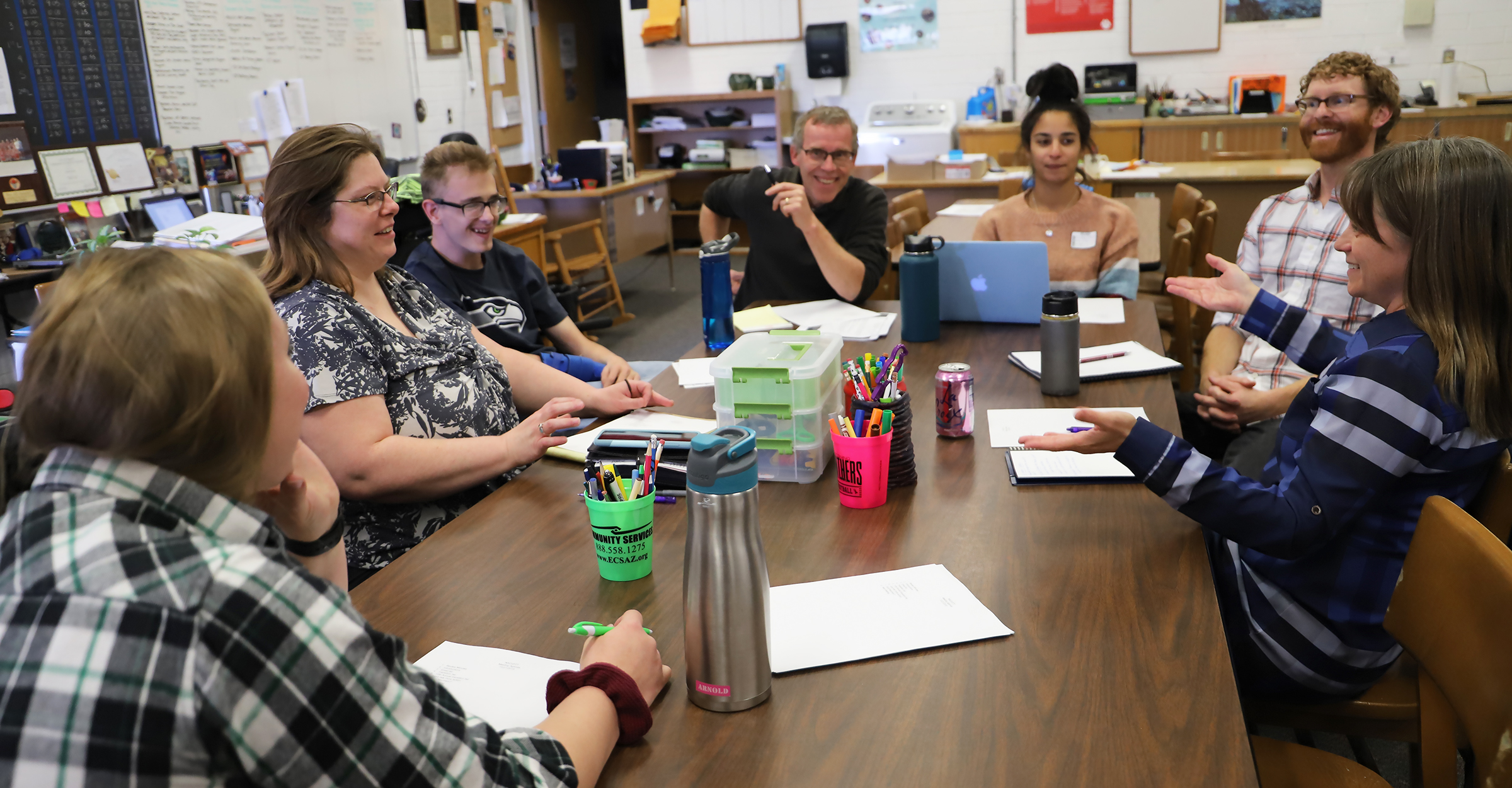Williamson awarded two $50,000 grants through the Arizona Developmental Disabilities Planning Council

Heather Williamson, assistant professor in NAU’s Department of Occupational Therapy, Center for Health Equity Research, and Institute for Human Development recently received two $50,000 grants to assist adults with intellectual and developmental disabilities through the Arizona Developmental Disabilities Planning Council Grant 2020.
The grants will support adults with intellectual and developmental disabilities in two ways. One grant is aimed to help find technology-based employment, and the other will promote and support effective communication and decision-making in health communications.
Technology-Based Employment for Adults with Intellectual and Developmental Disabilities in Arizona
In “Technology-Based Employment for Adults with Intellectual and Developmental Disabilities in Arizona,” Williamson is partnering with Jon Meyers, executive director, The Arc of Arizona; Russ Randall, transition facilitator, Transition from School to Work Program, Flagstaff Unified School District; and Byran Dai, chief executive officer and co-founder of Daivergent, a work readiness training corporation dedicated to the autism and developmental disability community.
Through the grant, 12 adults with intellectual and developmental disabilities will work with Daivergent for nine months, with the goal of being placed in technology-based employment opportunities.
The Daivergent program provides personalized online training for 21st century technology job skills and also offers social skills and peer support. After the 12 participants complete the training, the team will evaluate if the Daivergent training increases opportunities for technology-based employment for the participants.
According to Williamson, the inequity in access to employment is a health equity issue, since gainful employment for individuals with developmental disabilities has been linked to improved health and quality of life.
The Arizona Developmental Disabilities Planning Council conducted a summer 2020 survey of individuals with developmental disabilities in Arizona and found that those surveyed identified gainful employment as a top three priority.
Williamson and the team found that individuals with intellectual and developmental disabilities in Arizona are overwhelmingly more likely to be employed in jobs that require in-person completion of job duties, such as retail, food service, or other site-based labor, as opposed to technology-enabled jobs as reported in “The Graduation Cliff: Improving the Post School Outcomes of Students with Disabilities.”
“Our team is really excited to partner with Daivergent on this project,” Williamson said. “As a sibling to someone with a developmental disability, Byran Dai created Daivergent to help individuals with developmental disabilities, like his brother, achieve their employment goals. We are thrilled to bring this resource to Arizonans with intellectual and developmental disabilities.”
By demonstrating that adults with intellectual and developmental disabilities can learn high-technology skills and both obtain and sustain employment with companies operating in technology-enabled industries, this project can offer new avenues of opportunity to Arizonans.
Promoting Effective Communication and Supported Decision-Making in Health Communications for Adults with Intellectual and Developmental Disabilities
In “Promoting Effective Communication and Supported Decision-Making in Health Communications for Adults with Intellectual and Developmental Disabilities,” Williamson is partnering with Julie Armin, assistant professor, Sonoran Center for Excellence in Disabilities, Department of Family and Community Medicine and Practice, Health Promotion Sciences, and director of the health disparities curriculum for the College of Medicine, University of Arizona. Tammie Bassford, physician, associate professor of Family and Community Medicine and director of the Medical Home Project through the Sonoran Center for Excellence in Disabilities, will also assist with this project.
They will develop an online continuing medical education program to assist primary care providers with effectively working with individuals with intellectual and developmental disabilities to promote their decision-making within health care.
Formative work from Williamson and Armin’s Partnership for Native American Cancer Prevention funded project identified the need to educate primary health care providers about their role in supported decision-making with women with intellectual and developmental disabilities.
In this work, Armin and Williamson learned that both health care providers and people with intellectual and developmental disabilities note the tendency of physicians to overlook the “whole person” in favor of the individual’s disability.
They also found that national research with primary care providers indicates that they hold biases about people with disabilities, and they need more information and support in working with patients with disabilities.
“Through our work, our project team was aware that primary care providers needed more information on how to effectively and respectfully communicate with their patients with intellectual and developmental disabilities,” Williamson said. “Then the Council’s survey of adults with developmental disabilities confirmed that this was also a priority for Arizonans with disabilities. We look forward to creating these interactive learning modules.”